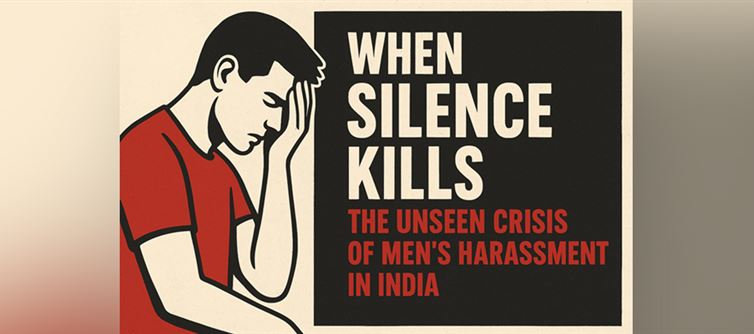
1. The Silent Epidemic of Men’s Suicides
Every day, newspapers and tv channels report stories of men who took their own lives after years of unspoken suffering. Whether due to false dowry allegations, marital harassment, or emotional abuse, these men die in silence — their pain dismissed, their struggles unacknowledged. Behind every such suicide lies:
• A grieving set of parents, robbed of their son.
• Children left fatherless, growing up with unanswered questions.
• Families carrying lifelong scars because society refused to listen.
2. The Case of Atul Subhash: A Symbol of Neglect
The tragic suicide of Atul Subhash was more than just an isolated incident — it was a window into the hidden suffering of countless husbands and fathers. Atul’s death could have ignited a larger conversation about men’s rights and systemic injustice. Yet, beyond a brief outcry, his story faded from public memory, much like the voices of countless men before him.
3. Systemic Bias: Why Men Are Ignored
• Our legal and social systems have long been skewed towards the narrative that only women can be victims within marriage. While protection for women remains crucial, the refusal to even acknowledge that men face harassment creates a dangerous imbalance. Key issues include:
• Misuse of Dowry and Domestic Violence laws, leading to false cases.
• Lack of helplines, shelters, or legal recourse for men in distress.
• Societal stigma that shames men for speaking about abuse.
• media silence, which frames men only as perpetrators, never as victims.
4. Why Justice Must Not Be Selective
• Justice, by definition, must be fair and inclusive. Selectively recognizing only one gender’s pain undermines the very principles of equality. Men, too, deserve:
• A legal framework that recognizes harassment against them.
• Counseling and support services to address emotional trauma.
• Equal dignity in marriage, free from the constant threat of misuse of laws.
5. The Road Ahead: What Needs to Change
• If india truly values fairness, dignity, and compassion, then urgent reforms are needed:
• Establish men’s helplines and crisis centers on par with women’s.
• Amend laws to punish the misuse of provisions meant for protection.
• Encourage open dialogue about men’s mental health and harassment.
• Educate society that abuse is not gender-exclusive.
Conclusion: A Call for Balance
How many more Atuls must die before we accept reality? The suffering of men is not an isolated phenomenon — it is a growing national crisis. True justice cannot exist if it is gender-biased. Men deserve protection, dignity, and recognition, just as women do.
It is time to break the silence. Because when society chooses to ignore half its victims, it is not just men who suffer — the very idea of justice collapses.




 click and follow Indiaherald WhatsApp channel
click and follow Indiaherald WhatsApp channel